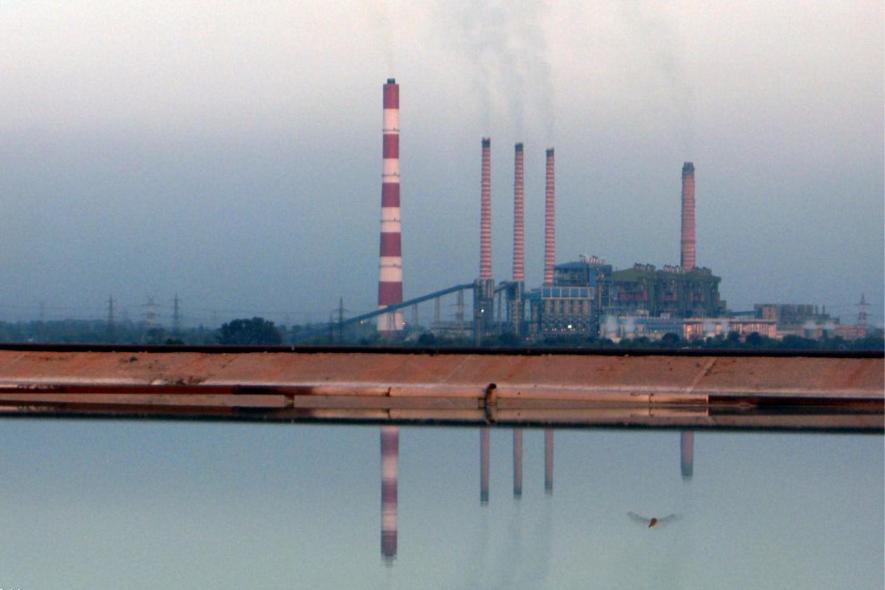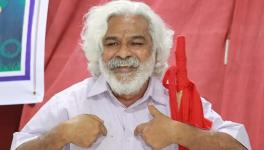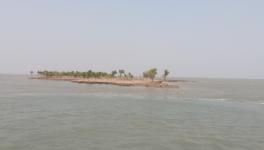Expert Panel Ignored Key Issues in Giving Nod to Telangana’s First Super Thermal Power Project?

Image Courtesy: Wikipedia
New Delhi: In a controversial move, an expert panel of the union environment ministry recommended clearance for a thermal power plant in Telangana despite several lacunae in the project’s environmental impact assessment report. Despite the lacunae, the Union Ministry of Environment, Forests & Climate Change (MoEF&CC) had also given environmental clearance to the project based on the expert panel’s recommendation.
On May 27, the National Green Tribunal held in abeyance the environmental clearance of a 2X800 megawatt (MW) thermal power project at Ramagundam in Karimnagar district of Telangana. The project proponent, National Thermal Power Corporation (NTPC), has been directed to conduct a slew of fresh studies before it can begin operations of the plant. NTPC has appealed against the decision of the green tribunal in the Supreme Court of India.
The Modi government had provided environment clearance to the plant, which is being developed by NTPC as the first Super Thermal Power Project of Telangana, in January 2016.
Amongst directions issued by the green tribunal, NTPC has been asked to conduct tests to ascertain the presence of radioactive and heavy metals in the coal that it will use to fire the power plant. The public sector major has also been asked to find out the overall impact of the fossil fuel-powered project on the local environment over a 15-km radius given the fact that many polluting industries already exist in the Ramagundam area.
“ … it is highly necessary to conduct environment impact assessment on the basis of the radio-activity and heavy metal presence in the coal to be used and that must be made available for appraisal by the Expert Appraisal Committee and the MoEF&CC before recommending or issuing the clearance to the proposed project,” ordered a Southern bench of the tribunal comprising Judicial Member Justice K Ramakrishnan and Expert Member Saibal Dasgupta.
While imposing an interim stay on the environmental clearance that had been granted in January 2016, the bench has further directed NTPC to complete the entire exercise of conducting all further tests within seven months. Operations of the thermal power plant can only commence after these test reports are analysed by the MoEF&CC expert panel, that is the Expert Appraisal Committee (EAC), and additional terms and conditions, if any, are imposed for executing the project.
The Environment Impact Assessment (EIA) report of the project had been discussed in two consecutive meetings of the EAC before granting the clearance. The project was discussed in the 45th meeting of the EAC held in October 2015. The project was again considered in the EAC’s 46th meeting in November 2015. The project was recommended for environmental clearance, albeit with certain conditions, even though NTPC had not provided details on the quality of coal in either of the meetings.
“Further, cumulative air quality impact of the project in the surrounding area was not adequately studied for the EIA report although there are around 20 highly polluting industries in the region. Though this study needs to be conducted over a 15 km radius of the project site, the impact of only a few industries lying within a 10 km radius was studied,” said Uma Maheshwar Dahagama, a local resident, who had challenged the project’s environmental clearance.
A query has been emailed to the MoEF&CC asking as to how the project was granted environmental clearance despite the apparent shortcomings in the EIA report. No response had been received from the ministry at the time that this report was published. The report will be updated as and when a response is received.
The total coal requirement for the project is estimated to be 8 million tons per annum (MTPA). As per the EIA report, the Union Ministry of Coal had, in September 2015, allotted Mandakini-B coal block in Odisha for the proposed project. But to ensure that the project began early operations, the ministry had in May 2015 given in-principle approval to NTPC to procure coal from Coal India Limited subsidiary Western Coal Limited. This arrangement was to remain in place till NTPC got its full supply of coal for the project from the Mandakini-B block. But NTPC had not conducted radioactivity and heavy metal tests for coal from any of the two aforementioned sources.
The assessment reports on coal quality were submitted to the EAC only in November 2016, around ten months after the Environmental Clearance was granted. Further, laboratory test reports of coal to be procured from Western Coal Limited did not include assessments for the presence of radioactive and heavy metals. The NTPC, in its defence, told the green tribunal that the worst quality of coal had been used to assess its impact on the environment for the Ramagundam plant. But the tribunal found no merit in this argument because radioactive and heavy metal tests had also not been conducted upon the sample of worst quality coal that was reportedly used by the project proponent for quality analysis.
The petitioner had alleged that environmental clearance was granted to the project in a “mechanical” manner even though there had been several lacunae in the EIA report. The project proponent had not presented confirmed fuel linkage for complete requirements of the plant when it was discussed in the 45th meeting of the EAC. The project proponent had stated that it has a confirmed fuel linkage for only 2 MW of electricity production from the public sector Singareni Collieries Limited. But the EAC had insisted upon confirmed fuel linkage for the entire requirement of the project before recommending it for an Environmental Clearance. In the subsequent meeting, however, the project proponent stated that it has a confirmed coal linkage from Western Coal Limited for the Ramagundam plant.
In addition, NTPC had allegedly not conducted studies to ascertain the impact of the fly-ash pond on groundwater and the feasibility of a Zero Liquid Discharge system for the project. Further, environmental impacts of the installation and operation of the proposed Flue Gas Desulphurization (FGD) system for the project had also not been studied. The NGT, in its order, has directed NTPC to conduct all these studies within the stipulated period.
An email sent to NTPC querying as to what grounds it had failed to conduct tests on radioactive analysis of coal to be sourced as also a cumulative impact assessment of the project over a 15-km radius. Responses to the query are awaited.
An NTPC official in Ramagundam told Newsclick that details and information about the project, as was sought by its head office in New Delhi for determining the further course of action following the NGT order, have been duly furnished.
“Many thermal power plants in the country are running at sub-optimal capacity at present owing to several factors including increased generation of electricity from renewable sources. If NTPC has been asked to relook at the project proposal, it should grab the opportunity to move away from fossil fuel and focus on renewable energy,” said Sunil Dahiya of the Center for Research on Energy & Clean Air.
The writer is an independent journalist.
Get the latest reports & analysis with people's perspective on Protests, movements & deep analytical videos, discussions of the current affairs in your Telegram app. Subscribe to NewsClick's Telegram channel & get Real-Time updates on stories, as they get published on our website.























